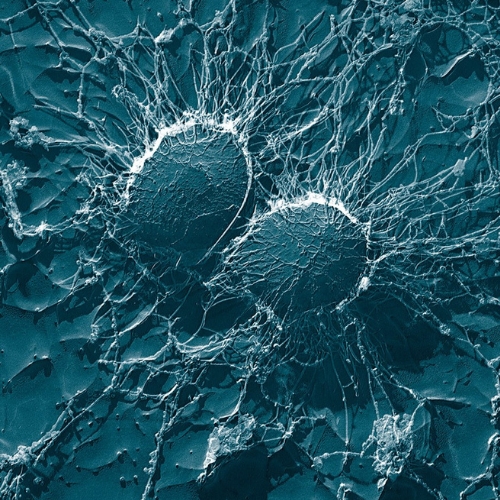The journey of ageing is a complex one, particularly for our brain. As we advance in years, our brain's ability to maintain its health and function diminishes, often leading to debilitating neurological diseases. Central to this ageing process is the degradation of the blood-brain barrier (BBB), a crucial protective shield for our brain's delicate environment. This research delves into the intricate roles played by circadian rhythms and gut microbiota—fundamental elements of our biological system—and their impact on the ageing brain and the BBB. By understanding these mechanisms, we can begin to unravel the mysteries of neurological ageing and pave the way for revolutionary treatments.
Interplay of Circadian Rhythms and Gut Microbiota
The intricate relationship between circadian rhythms and gut microbiota, and their collective impact on the blood-brain barrier (BBB) and ageing, is a fascinating area of research. Circadian rhythms, our body's internal clock, regulate numerous physiological processes, including sleep-wake cycles, hormone release, and eating habits. These rhythms are crucial for maintaining the body's homeostasis and overall health. Gut microbiota, the vast array of microorganisms living in our digestive system, also play a vital role in health, influencing everything from metabolism to immune system function.
The interplay between these two systems becomes particularly significant as we age. Research has shown that disturbances in circadian rhythms can lead to an imbalance in the gut microbiota, termed dysbiosis. This dysbiosis can, in turn, exacerbate the disruption of circadian rhythms, creating a vicious cycle. These disturbances have far-reaching implications, particularly concerning the BBB, which serves as a critical barrier preventing harmful substances from entering the brain.
With age, the BBB becomes more permeable, a process that is further accelerated by disruptions in circadian rhythms and gut microbiota balance. This increased permeability allows for the infiltration of neurotoxic substances, pro-inflammatory cytokines, and other harmful elements into the brain's environment, contributing to neurodegeneration and the onset of age-related neurological diseases.
The circadian system regulates many aspects of gut physiology, including motility, absorption, and the microbiota composition itself. Therefore, when circadian rhythms are disrupted (due to factors like irregular sleep patterns, exposure to light at night, or shift work), it can directly impact gut health. For example, a misaligned circadian rhythm can lead to changes in the timing and amount of food intake, which subsequently alters gut microbiota composition.
Conversely, the gut microbiota can influence circadian rhythms by producing metabolites that impact the central nervous system and peripheral tissues. Certain gut bacteria produce metabolites like short-chain fatty acids (SCFAs) and tryptophan metabolites, which play roles in regulating sleep and mood. An imbalance in these microbial populations can disrupt these metabolic pathways, leading to alterations in circadian rhythms.
This bidirectional relationship highlights the complex nature of how our body's systems are interconnected and how changes in one area can significantly impact another. The implications of this research are vast. By better understanding the mechanisms underlying the interplay between circadian rhythms, gut microbiota, and the BBB, researchers can develop targeted interventions to maintain or restore balance in these systems. Such interventions could range from lifestyle modifications (like regularizing sleep patterns and diet) to pharmacological treatments that target specific pathways involved in this interplay.
As the population ages, the importance of such research becomes increasingly crucial. Developing strategies to maintain BBB integrity and prevent the onset of neurological disorders by modulating circadian rhythms and gut microbiota could significantly improve the quality of life for older individuals and reduce the burden of age-related neurodegenerative diseases.
Research findings
The published research primarily reviews existing literature to explore the connections between the blood-brain barrier (BBB), circadian rhythms, and gut microbiota in the context of ageing-accompanied neurological diseases. The methodology involves a comprehensive analysis of current studies and data to understand how disruptions in circadian rhythms and gut microbiota dysbiosis contribute to BBB damage and subsequent neurological decline during ageing. This approach enables the authors to propose potential mechanisms and interventions for these conditions.
The research offers insights into the ageing process of the brain. Researchers discovered intricate connections between circadian rhythms, gut microbiota, and the blood-brain barrier (BBB). Key findings include:
Ageing and BBB Permeability: The study revealed that ageing significantly increases the permeability of the BBB. This change allows harmful substances to access the brain, contributing to neurological diseases.
Circadian Rhythms' Role: Disruptions in circadian rhythms, influenced by ageing, are linked to increased BBB permeability. These disruptions lead to an imbalance in the production of certain metabolites and inflammatory molecules, exacerbating brain damage.
Gut Microbiota's Influence: Similarly, changes in gut microbiota due to ageing affect BBB integrity. The gut-brain axis becomes imbalanced, resulting in increased vulnerability of the brain to diseases.
Interplay of Factors: Perhaps most importantly, the research illustrates a bidirectional relationship between circadian rhythms and gut microbiota, each influencing the other and jointly affecting the BBB.
These findings provide a new perspective on how targeting these interconnected systems could lead to novel therapeutic approaches for delaying or preventing age-related neurological disorders.
Conclusion
This research offers a deep understanding of the ageing brain, spotlighting the pivotal role of the BBB, circadian rhythms, and gut microbiota. Its findings could pave the way for innovative treatments to combat neurological diseases associated with ageing.
Credits and Acknowledgments
This research was conducted primarily from the Department of Neurology, the Second Affiliated Hospital of Jiaxing City, Jiaxing University, and the Beijing Key Laboratory of Cancer Invasion and Metastasis Research, Capital Medical University. The study was published in Acta Pharmaceutica Sinica B.






